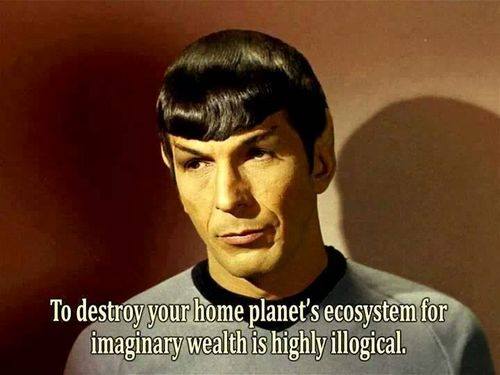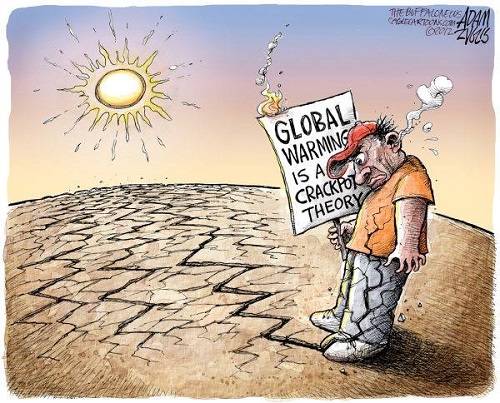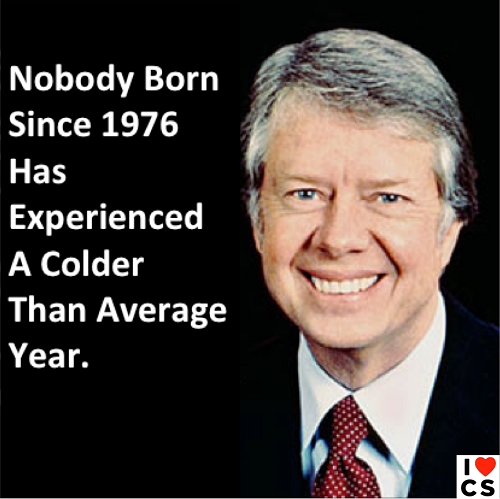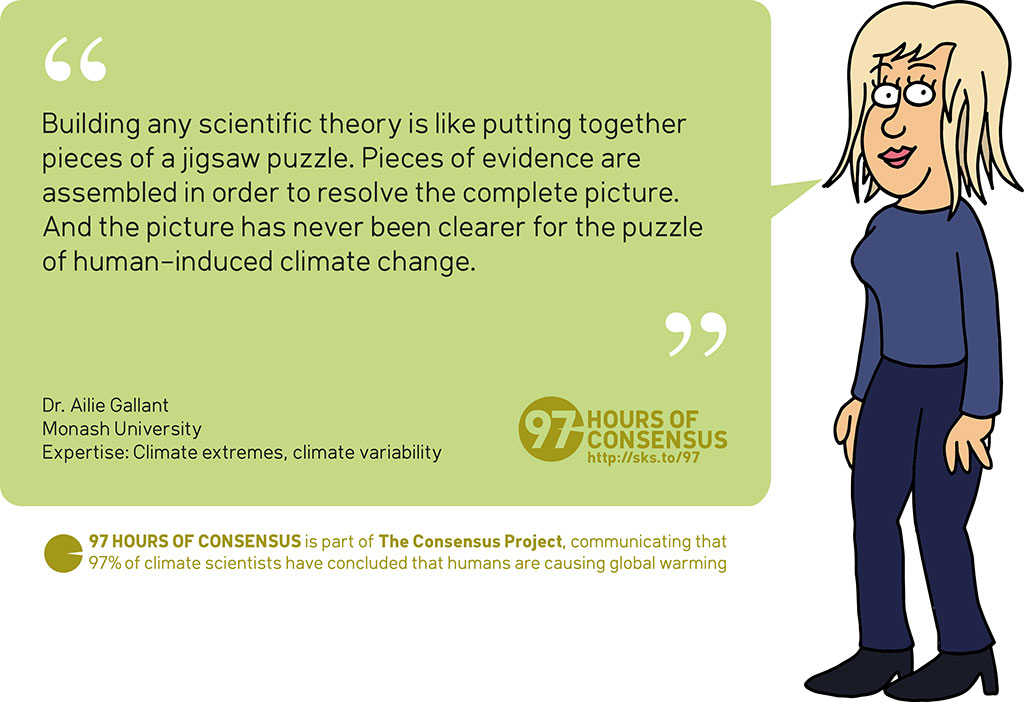2015 SkS Weekly Digest #9
Posted on 1 March 2015 by John Hartz
Thank you Leonard Nimoy

Hat tip to I Heart Climate Scientists.
SkS Highlights
Understanding adjustments to temperature data, a guest post by Zeke Hausfather garnered the largest number of comments of the articles posted on SkS during the past week. Attracting the next highest number of comments was John Abraham's With climate change, US presidents matter followed closely by Dana's Climatology versus Pseudoscience book tests whose predictions have been right and Kevin C's Telegraph wrong again on temperature adjustments.
SkS Hearts Chris Mooney
Chris Mooney begins a recent blog post with:
It’s probably the most famous study ever conducted about how climate scientists, themselves, think about the subject they examine. According to a gigantic 2013 literature review, 97.1 percent (our bold) of published scientific studies that took a position on the matter “endorsed the consensus position that humans are causing global warming.”
This “97 percent” figure has since gone everywhere — triggering debates and discussions around the world. It has been celebrated, pilloried, attacked — and most of all, heralded as the key to explaining climate change to the public.
Indeed, public opinion scholars have been trying to measure, in controlled experiments, whether simply telling people about the existence of the “97 percent” consensus can make them think more in the way that scientists do — and knock off the all too common practice of doubting the reality of climate change.
Researchers think they’ve found a “gateway belief” that leads to greater science acceptance by Chris Mooney, Energy & Environment, Washington Post, Feb 26, 2015
Toon of the Week

Hat tip to I Heart Climate Scientists.
Quote of the Week
Bob Ward, policy director at the Grantham Research Institute on Climate Change at the London School of Economics, said: “It is understandable that Dr Pachauri has resigned from his post while he is facing allegations against him in India.”
Ward said: “There will no doubt be some climate change ‘sceptics’ who seek to use Dr Pachauri’s resignation as an opportunity to attack the IPCC [but its most recent report] is the most comprehensive and authoritative assessment of the causes and potential consequences of climate change that we have ever had, and that remains true with or without Dr Pachauri as chair.”
IPCC chair Rajendra Pachauri resigns by Damien Carrington, The Guardian, Feb 24, 2015
SkS in the News
The SkS listing of Global Warming & Climate Change Myths is referenced and linked to in Chris Mooney's Energy & Environment article, No, the sun isn’t driving global warming posted on the Washington Post.
Denise Robbins links to the SkS profile, Climate Misinformer: Willie Soon in her Media Matters for America article, Right-Wing Media Rush To Defend Industry-Funded Climate Denier Willie Soon.
Heartland Institute 58 Experts Poster Remixed by DeSmog (Blog) references and links to two SkS articles: Warming oceans consistent with rising sea level & global energy imbalance and The Cook et al. (2013) 97% consensus result is robust.
Coming Soon on SkS
- Fossil fuel industry caught taking a page out of the tobacco playbook (Dana)
- New Series: Science Communicators – Why We Love Communicating Science (Collin Maessen)
- 2015 SkS Weekly News Roundup #10A (John Hartz)
- Michael Mann on the Faux Pause (John Abraham)
- Understanding Time of Observation Bias (Zeke Hausfather)
- Scientists discuss how strongly a warming Arctic is implicated in extreme weather (Robert McSweeney)
- 2015 SkS Weekly News Roundup #10B (John Hartz)
- 2015 SkS Weekly Digest #10 (John Hartz)
Poster of the Week

SkS Week in Review
- 2015 SkS Weekly News Roundup #9B by John Hartz
- New Video: What Climate Deniers Learned from Big Tobacco by greenman3610
- 2015 SkS Weekly News Roundup #9A by John Hartz
- Understanding adjustments to temperature data by Zeke Hausfather
- With climate change, US presidents matter by John Abraham
- 2015 SkS News Bulletin #1: Adjusting Temperature Records by John Hartz
- Telegraph wrong again on temperature adjustments by Kevin C
- Climatology versus Pseudoscience book tests whose predictions have been right by Dana
- 2015 SkS Weekly Digest #8 by John Hartz
97 Hours of Consensus: Ailie Gallant
































 Arguments
Arguments






























I just answer to a comment at http://sciblogs.co.nz and the question of using social dilemmas crops up.
Why aren't social dilemmas a core tool in our battle against GW-deniers (which can also be applied to anti-vax? Social dliemmas give us a pretty good explanation about why we fail to weigh on the political momentum of our civilization. (ref: tragedy of the commons)
Peter : http://www.metaskeptic.net
John,
Where does the sentence on Leonard's picture come from. Did Leonard say it and on what occasion? Can you provide the source?
While we are remembering his life I want to know more about him and want to know in detail why he's featured here in SkS. Thanks!
[JH] Many members of the all-volunteer SkS author team are fans of Star Trek. Mr. Spock embodies the concept of logical thinking which underpins science. The poster is from the album section of the "I Heart Scientist's" Facebook page.
Barry Bickmore has a beautiful take down of the "argument from authority is a fallacy" cannard, which neatly punctures Delingpole into the bargain.
(And just to be clear, an argument from authority is a logical fallacy. That is, the premises can be true and the conclusion false - even if it is just once in every billion times the argument is used. The argument from induction is likewise a logical fallacy. Indeed, it is impossible to draw any conclusion except in maths and logic without invoking a logical fallacy. The key question is whether the "logical fallacy" you invoke is inductively sound, ie, whether, of the premises are true there is a very high probability that the conclusion is also true.)